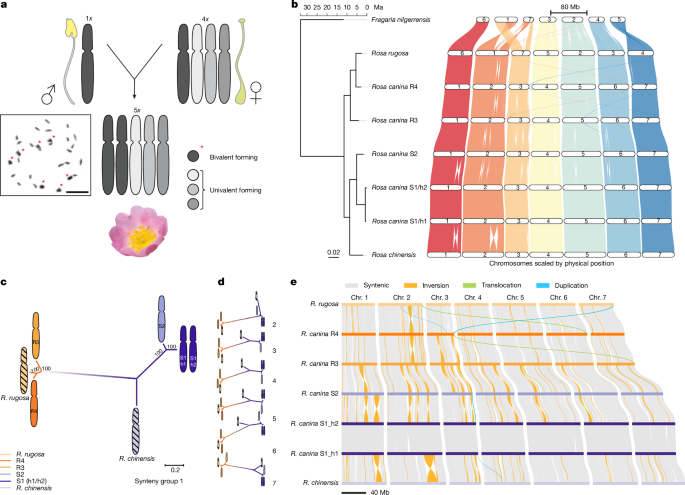
"Polyploidy results from meiotic failure, leading to unreduced gametes and challenges in sexual reproduction, often favoring vegetative propagation or apomixis in plants."
"In many allopolyploids, there is a preference for recombination between homologous chromosomes from the same subgenome, while exchanges between different subgenomes are suppressed."
"The genus Rosa showcases evolution through frequent polyploidy and hybridization, reflected in the great diversity of cultivated roses with a long breeding history."
"Allopolyploid dogroses within Rosa exhibit a unique reproductive strategy called Canina meiosis, marked by selective chromosome pairing that directs genomic recombination."
The article discusses polyploidy and its implications for the reproductive strategies of land plants, particularly within the genus Rosa. Polyploidy often arises from meiotic failure, resulting in unreduced gametes and challenges for sexual reproduction, which may lead to vegetative propagation or apomixis. In allopolyploid plants, there is often a preference for homologous recombination, while exchanges between different parental subgenomes are reduced. The genus Rosa serves as a prime example of these phenomena, showcasing frequent polyploidy and hybridization events throughout its evolution and diverse breeding history.
Read at Nature
Unable to calculate read time
Collection
[
|
...
]